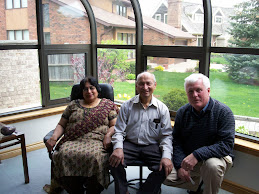Today, up and down the country thousands of young graduates are kicking about, unemployed, on Facebook and Twitter, looking for something to do. Parents have spent a fortune on their education, yet many are unemployed – just like their friends who dropped out or didn’t bother with university. What is the point of paying for education which doesn’t give graduates a leg-up in the jobs market?
Youth unemployment has enormous implications for the future of education. Education is not delivering in the traditional way and the online revolution may destroy universities and institutions, particularly if these institutions move to protect their patch rather than open up to change.
Many students speak of appalling teachers and lecturers who are incapable of communicating their subject. Clearly there are good lecturers, but too many are second rate. Until now there was no alternative to traditional education and some institutions still think they have an exclusive right to provide education because some board or other has accredited them.
Those days are over. Online education is exploding at a time when traditional education is underachieving and the online revolution is as much a threat to the likes of Trinity and UCD as downloading was to HMV.
Every day that a young graduate draws the dole, it chips away at the credibility of out university edifice because it is breaking the deal as understood for years. This traditional and middle-class deal was simple. Students did the Leaving Cert, struggled with the points race and went to college. The subsequent degree propelled these students up the job escalator, giving them a much better chance of a much better job.
Social mobility, which in Ireland since the 1960s has been impressive, was gauged by, amongst other things, the access to and participation in, third-level education. And this in turn fuelled the dynamo of upward social mobility. This understanding is primarily why parents are prepared to pay for education.
Importantly, mobility forms the basis for the Great Irish Dream which, like the American Dream, is a story of self-improvement, upward momentum, based on the notion that tomorrow will be better than today and your children’s future will be better than your present.
However, this conveyor belt has stopped and we are now looking at the first generation of Irish university graduates who are likely to be poorer than their parents.
Unemployment has skyrocketed amongst graduates as has emigration, while unemployment has remained quite stable amongst the middle-aged. And we can see that lots of today’s policies are aimed at preserving the wealth and income of the middle-aged even if this means less opportunity for the young. If you doubt this, look at the celebratory reaction from the media and politicians to a rise in house prices. But rising houses prices negatively affect the young who haven’t got houses and benefit those who already own houses, the older ones.
Poor economic prospects early in one’s career can be very damaging. We know from US research that periods of unemployment in a person’s 20s have a permanently negative impact on their total lifetime earnings. Put simply, the unemployed graduate doesn’t recover from the period of post-college unemployment.
And those who get jobs are seeing their wages fall. Last week, we saw graduate nurses’ entry level wages set at €22,000 a year – 20pc less than their colleagues. These ‘yellow-pack’ nurses will also earn the same as many workers in unskilled jobs, despite having spent four years in college. However, the new recruits will have the same responsibilities and be expected to carry out the same work as their colleagues.
While the following data on physiotherapy might not be totally representative, it does reveal the betrayal of the Irish Dream. The Irish Society of Chartered Physiotherapists (ISCP) carried out a survey on 2011 and 2012 physiotherapy graduates in September 2012. Of 114 graduates:
30 are working voluntarily (unpaid physiotherapists).
16 are doing further study (13 in the area of physiotherapy).
49 are currently unemployed or working outside of physiotherapy.
10 have emigrated.
One is employed in HSE/voluntary hospital/through an agency.
These are revealing statistics. We also know that youth unemployment is 30pc in our country and that thousands are emigrating.
So if traditional education doesn’t set you up, why pay for it? If the degree doesn’t offer a passport to a new life, why pay for it?
If we look at figures published by DIT last year on the cost of being a student we can see how expensive it is. Last year, it cost €7,803 to live away from home as a student; those living at home still had to fork out €4,095. These figures don’t include fees, which are set to rise.
And if the economy remains a cold house for graduates, many will switch to online courses in the knowledge that the financial returns to education are falling, while the cost of traditional education is rising.
In the US, online education is already enormous. The number of students enrolled jumped from 1,602,970 in 2002 to 6,142,280 in 2010. And as a percentage of total enrollment, online courses now account for 31.3pc of new enrollments in the US.
Probably the biggest threat to universities is found in the findings of a 12-year study by the US Department of Education, which concluded: “On average, students in online learning conditions performed better than those receiving face-to-face instruction.”
There will be a myriad reasons to explain this but if this doesn’t put a chill up the gowns of academia, I’m not too sure what will.
So will the very academic institutions that are now opening “innovation centres” get clobbered by the very march of innovation which they claim to be fostering? Will UCD go the way of HMV?
Why should the middle-classes continue to support a system that betrays them? Why should they download their music but not their education? Why should they be protected from innovation when the rest of us are told to embrace it? If you have a good reason, I’d be delighted to hear it.
David McWilliams’ new book The Good Room is out now
Subscribe to:
Post Comments (Atom)









No comments:
Post a Comment